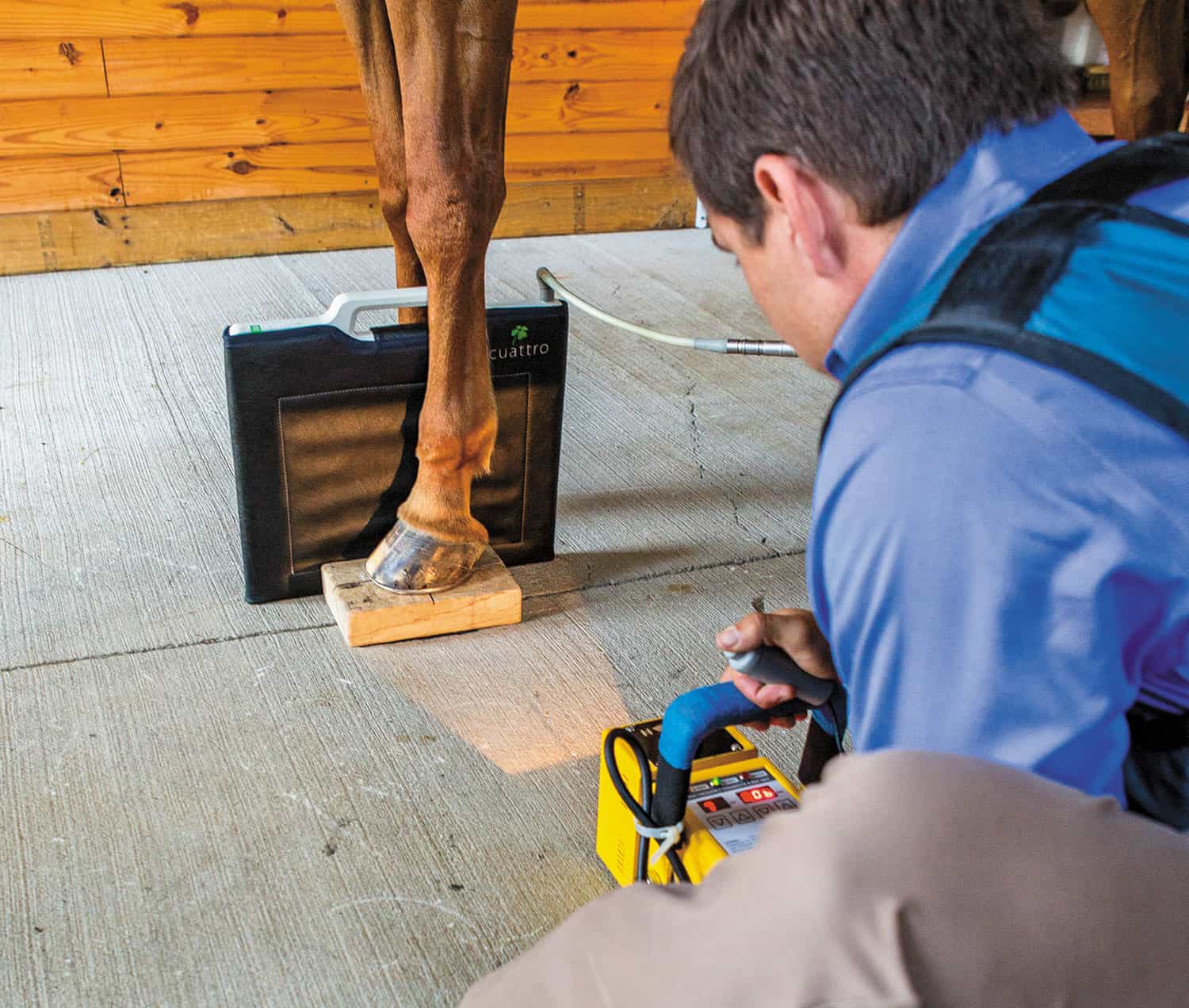Hoof Radiographs: More Than Meets the Eye

Something on the X rays looks a bit off—is it significant or of no consequence?
The signs are subtle and they’ve come on slowly, but it’s become quite clear that your mare is lame. She shifts right to left and back again, like ocean waves lapping the shore, making it difficult to know exactly what hurts. Just about the only thing you can grasp from watching the changing tides of her lameness is which foot is affected.
You call your veterinarian, who conducts a complete examination that includes radiographs (X rays) of your mare’s foot. The resulting images are far from textbook, but which structural changes are causing her pain? And which ones are likely little reason for concern?
“An X ray might be black and white, but interpreting those X rays and deciphering what ‘abnormalities’ are important and which aren’t are definitely filled with shades of gray,” says Tracy Turner, DVM, MS, Dipl. ACVS, ACVSMR, of Anoka Equine Veterinary Services, in Elk River, Minnesota TheHorse.com is home to thousands of free articles about horse health care. In order to access some of our exclusive free content, you must be signed into TheHorse.com. Already have an account?Create a free account with TheHorse.com to view this content.
Start your free account today!
and continue reading.

Written by:
Stacey Oke, DVM, MSc
Related Articles
Stay on top of the most recent Horse Health news with















